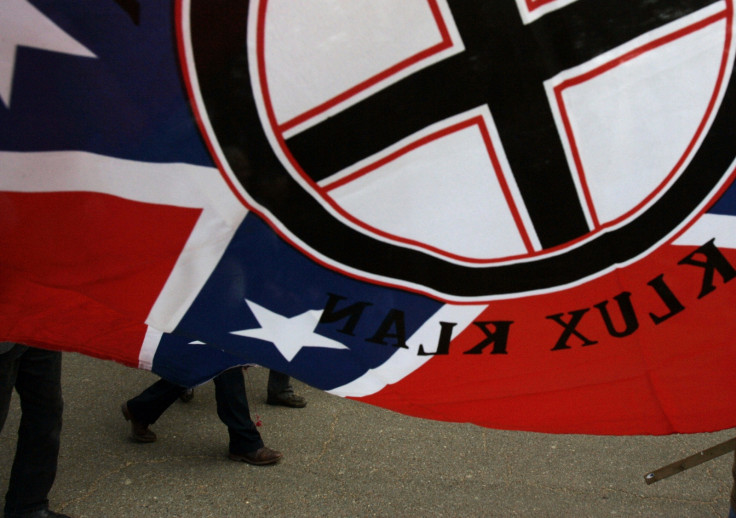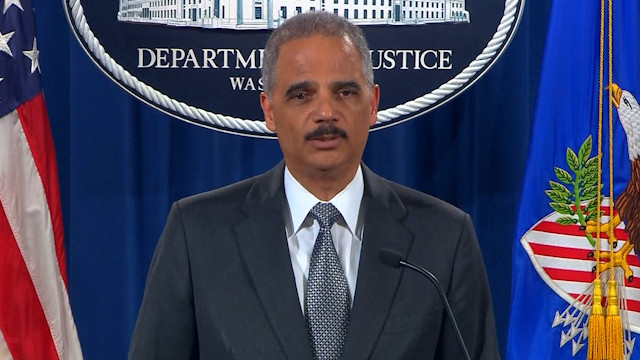Web of hatred: Internet inspires US far-right extremists to carry out 'lone wolf' terror attacks

Surging numbers of US far-right extremists are inspired to carry out "lone wolf" terror attacks after being radicalised online, despite the number of extremist groups declining, an expert said.
Mark Potok of the Southern Poverty Law Center, which monitors extremist groups in the United States, said that though there were fewer far-right organisations now operating in the country, after a brief surge following Barack Obama's election as US president, the number of attacks by the far-right had risen to levels not seen since the 1990s.
"We think that very large numbers of people are essentially abandoning organised groups and moving into both the safety and anonymity but also the broadcasting power of the internet," he said.
Of the racist attacks of previous decades, such as that plotted by white supremacist groups in the 1960s, Potok said: "An enormous amount of that violence was planned in smoky rooms filled with men. You would have an entire groups, like the Mississippi White Knights ordering murders or firebombing. It just doesn't happen that way anymore."
Recently, the US Department of Homeland Security warned domestic extremists pose a greater terror threat than jihadist group Islamic State (Isis), with 24 terror attacks by US extremists recorded since 2010.
Earlier in March, for example, a convict with links to Neo Nazi groups allegedly killed one man and wounded five others in a shooting spree in Arizona.
Individuals carry out attacks or work in pairs
According to research carried out by the center, an overwhelming majority of these attacks are carried out by so-called "lone wolves", with 74% of the incidents (totalling just over 60) examined involving an individual acting alone. And when looking at 90% of all incidents, only one or two people were involved, usually including a family member or spouse.
You see extremists both in white supremacist forums, like Stormfront, but you also see people posting racist and anti-Semitic comments on blogs, and in the comments forums of newspaper sites, and that's spreading
A recent study by the organisaion identifies 63 actual or foiled attacks by domestic "lone wolves". Among them are attacks by a couple with radical, anti-government views who shot dead two police officers and a bystander in Las Vegas in June 2014, and a 2012 mass shooting at a Sikh temple in Wisconsin by a Neo Nazi.
With law enforcement increasingly effective at breaking up violent conspiracies by far-right groups, and with the costs of being exposed as a member of an extremist group high, Potok said the far-right radicals were increasingly taking to the internet to vent their resentment and propagate their ideology.
"When you are outed as a member of these groups, which happens quite frequently now, you may lose your wife, your kids, we have seen it happen to a lot of people," he said. "Instead you see extremists both in white supremacist forums, like Stormfront, but you also see people posting racist and anti-Semitic comments on blogs, and in the comments forums of newspaper sites, and that's spreading."
Far-right subculture produced by the internet
Potok argues the internet has produced a far-right subculture that is international in its scope and ambitions, with lone wolf extremists such Anders Breivik regularly posting on US extremist forums, and US radicals in close contact with their European counterparts.
"It shows clearly how international this movement has become," he said. "When you go on to Stormfront and read the posts from some of our own radical right, they are very much apprised of what is going on in Europe."
He said far-right lone wolf attacks were "very very" difficult to foil, because groups did not usually directly implore followers out carry out the attacks on online forums.

Instead, said Botok, extremists had their prejudices amplified reinforced online, often inspiring them to take deadly action.
"It's a kind of justification. They don't feel like they're some lone nutcase with a mental problem they are part of a very large 'white nationalist community' and there people involved in Europe as well so it looks like an international movement to save the white race," he said.
In the wake of the recent murder of three US-born Muslim university students near the University of North Carolina, Potok warned Muslims would increasingly become the target of far-right extremists.
Though the incident has not yet been classed as a hate crime, Potok said: "What are almost certainly coming into is a period in which anti-Muslim hatred and violence is going up."
The Oklahoma bombings in 1995, in which 168 were killed, were the most deadly terror attack in the US before 9/11, and in response the US Department of Justice formed a committee to combat the threat of domestic extremists.
Though disbanded just before 9/11, US Attorney General Eric Holder announced recently that it would reform to combat the terror threat from domestic radicals.
Daryl Johnson, a security analyst, told the center: "We're long overdue for a much greater attack from the far right."
© Copyright IBTimes 2025. All rights reserved.






















